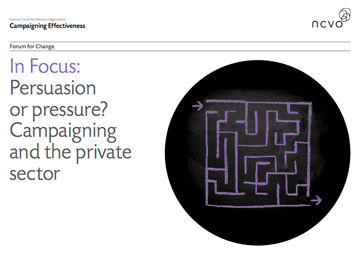Blogs
Another nail in the coffin of satire
11 February, 2012 - 10:23 — WebmasterI was going to include this expression in a press release sent out yesterday, but no-one in the office understood what it meant.
If you have to explain a joke then it isn't very funny. But here goes.
- Webmaster's blog
- Login to post comments
- Read more
Nestlé in court for spying on Swiss group
25 January, 2012 - 10:51 — WebmasterNestlé is in court in Switzerland on 24th and 25th January 2012 for running spies in the Swiss campaign group, ATTAC.
- Webmaster's blog
- Login to post comments
- Read more
Governments should govern, and corporations should follow the rules
16 January, 2012 - 14:15 — WebmasterThe latest edition of SCN News contains an article written by myself and Patti Rundall, our Policy Director, with this title. See page 51 of http://www.unscn.org/files/Publications/SCN_News/SCNNEWS39_10.01_high_def.pdf
- Webmaster's blog
- Login to post comments
- Read more
A question for members of the United Reformed Church
27 November, 2011 - 10:34 — WebmasterWe have received shocking news from the United Reformed Church (URC) Secretary for Church and Society.
- Webmaster's blog
- Login to post comments
- Read more
Pressure and persuasion - small acts help to hold big corporations to account
23 September, 2011 - 17:44 — Webmaster I was pleased to provide information to the National Council for Voluntary Organisations (NCVO) for a briefing it produced on Campaigning and the private sector - click here.
I was pleased to provide information to the National Council for Voluntary Organisations (NCVO) for a briefing it produced on Campaigning and the private sector - click here.
This includes profiles of the campaigning strategies of a range of organisations, including Amnesty International, Greenpeace and Baby Milk Action.
Although it includes in the title the question Persuasion or pressure? these are not mutually exclusive. Indeed, with some corporations it takes pressure to persuade them to act.
- Webmaster's blog
- Login to post comments
- Read more
The Conflicts of Interest Coalition - protecting health right now in New York
21 September, 2011 - 19:56 — WebmasterBaby Milk Action recently formed the Conflict of Interest (COI) Coalition, bringing together - so far - over 140 international networks and civil society organisations calling for the United Nations to avoid conflicts of interest as it sets policies on obesity, diabetes and other Non-Communicable Diseases (NCDs).
The Coalition represents thousands of non-profit public health advocacy groups around the world.
- Webmaster's blog
- Login to post comments
- Read more
Department of Health responds to Baby Milk Action email campaign
29 July, 2011 - 15:03 — WebmasterOver 1,000 people have sent emails to the Secretary of State for Health, Mr. Andrew Lansley, asking the Government to reconsider its decision to scrap its Infant Feeding Coordinator posts and its support for National Breastfeeding Awareness Week. The response from the Department of Health is given below.
- Webmaster's blog
- Login to post comments
- Read more
Nestlé, FTSE4Good and baby milk marketing practices
7 July, 2011 - 23:48 — WebmasterUpdated: 7 April 2014
Click here to download this briefing paper as a pdf file. The online version links to references.
For IBFAN's briefing on FTSE4Good - click here.
Nestlé is listed in the FTSE4Good ethical investment Index. Nestlé’s Chairman tells people this demonstrates it complies with baby food marketing requirements. This is not the case. FTSE has asked Nestlé more than once to stop misrepresenting what inclusion signifies. Here is the background.
- Webmaster's blog
- Login to post comments
- Read more
Reuniting mothers and babies - we are all Habiba
21 June, 2011 - 12:30 — Webmaster Baby Milk Action and its partners have repeatedly raised concerns when mothers have been separated from their babies in immigration or detention centres or denied access to feed them. This action has led to questions being raised in Parliament and helped bring about changes to government procedures (press release from 2007 case).
Baby Milk Action and its partners have repeatedly raised concerns when mothers have been separated from their babies in immigration or detention centres or denied access to feed them. This action has led to questions being raised in Parliament and helped bring about changes to government procedures (press release from 2007 case).
We have been asked to support mothers' rights in a similar case in Spain, that of Habiba and her daughter.
(Campaign image by Louma Sader Bujana / AmorMaternal.com).
- Webmaster's blog
- Login to post comments
- Read more
Communicating and meeting with baby food company executives
17 June, 2011 - 20:04 — WebmasterAn article published at BioMed Central entitled What could infant and young child nutrition learn from sweatshops? concludes: "Lessons from the sweatshops debate could serve as a model to promote cooperation and trust between public and private groups, such that they learn to work together towards their common goal of improving infant and young child nutrition."
The article misses the point that campaigners are in ongoing communication with company executives. The failure of executives to abide by marketing requirements and the way they try to excuse practices and discredit critics demonstrates their focus is not on a 'common goal of improving infant and young child nutrition', but on maximising profits. They can comply with marketing requirements when forced to do so - as in Brazil and India, for example (breastfeeding rates have recovered in the former and the formula market is failing to grow in the latter) - but elsewhere violations are commonplace and it takes public pressure to stop them. There are offers on the table for meeting when companies indicate they are serious about complying with the marketing requirements. Until they do so, methods that have helped to protect the vulnerable in many countries will continue to be pursued.
I have posted the following response as a comment to the article.
- Webmaster's blog
- Login to post comments
- Read more






